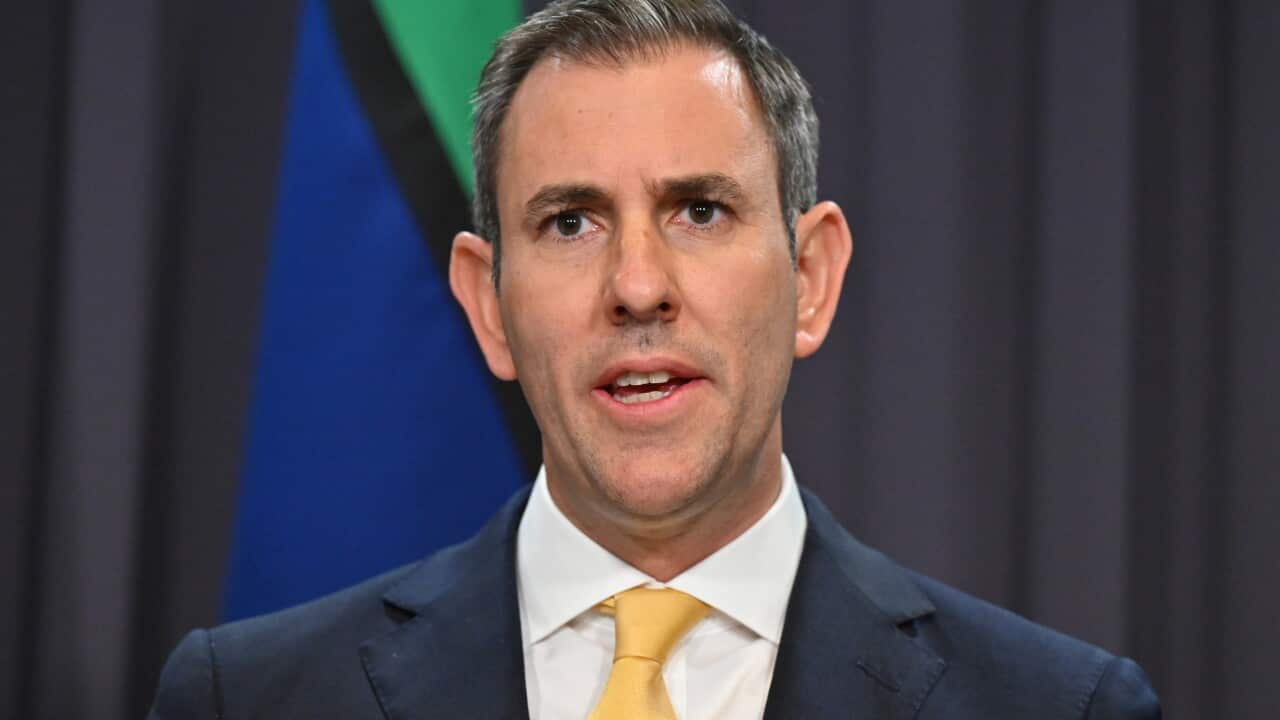Key Points
- The number of skilled visas available will increase significantly from 79,600 to 142,400.
- More parent visas will be available, with the government increasing the allocation from 4,500 to 8,500 this year.
The Albanese government will almost double the number of parent visas and will significantly increase the number of skilled visas available as part of the federal budget.
It has also restored some after it was cut by the previous Morrison government.
An extra $576 million over four years will be provided to the Department of Home Affairs towards visa processing, to cover a shortfall in funding for the maintenance of offshore processing centres and to support refugees.
But this is still around $300 million less than the $875 million that was taken out in March.
Prime Minister Anthony Albanese said .
"This is a substantial improvement in funding for Home Affairs, we are getting the processing of visas going again," Mr Albanese told SBS News.
Refugee advocates have said the budget has failed to live up to expectations.

A breakdown of the skilled visas available in the 2022-23 budget.
What has the Albanese government said about visas in the federal budget?
The Albanese government had previously announced it would put in an extra $36.1 million to hire more staff to bring down visa processing wait times. It had also said it would increase the number of places for skilled and family visas from 160,000 to 195,000.
While it hasn't increased the number of visas available as part of the migration program, the government will introduce a new Pacific Engagement Visa for nationals of Pacific Island countries and Timor-Leste.
Up to 3,000 places will be available each year from next year, and this will be in addition to 195,000 available as part of the permanent program.
The number of skilled visas available will increase significantly from 79,600 to 142,400. This will include employed sponsored, skilled independent, regional, as well as state and territory nominated visas.
More parent visas to be made available
When it comes to family visas, more parent visas will be available, with the government increasing the allocation from 4,500 in 2021-22, to 8,500 this year. Partner and child visas will remain demand-driven with no limit placed on these. There will also be around 500 other family visas, and 100 special eligibility visas available.
The humanitarian visa program will stay the same with 13,750 places available in 2022-23, and an extra 16,500 for Afghan refugees over four years.
Priority for skilled visas will be given to people living overseas, and to New Zealanders who have lived in Australia for many years.
Migration basically just makes Australia bigger, it doesn't necessarily make it better, either in terms of the economy or the budget.Chris Richardson
Expanded immigration program will bring in millions in extra tax revenues
The changes to the program are expected to bring in an extra $935 million in tax revenue over the next four years, and are estimated to cost about $487 million for the provision of extra services such as school places or language programs.
While some Australians think increased immigration takes away jobs from local people, independent economist Chris Richardson said the same argument was made about married women entering the workforce in the late 1970s.
"Migration basically just makes Australia bigger, it doesn't necessarily make it better, either in terms of the economy or the budget," he told SBS News.
Mr Richardson said expectations of a rise in unemployment were due to the rise in interest rates and the slowing of the global economy.
Response from community groups
The Asylum Seeker Resource Centre praised the funds allocated to a pilot program to help Temporary Visa Holders experiencing family and domestic violence. The budget sets aside $12.6 million over two years from 2022–23 for the initiative.
But the group said a number of key election commitments were not delivered.
"The 2022-23 Federal Budget failed to live up to the public expectations for a more compassionate and fair country for refugees and people seeking asylum," it said in a statement.
"The Asylum Seeker Resource Centre is deeply disappointed that key Australian Labor Party commitments have not been met in this budget, including increasing humanitarian intake, abolishing Temporary Protection Visas/Safe Haven Enterprise Visas and providing appropriate social services for people seeking asylum."
LISTEN TO

What barriers are faced by people from migrant communities entering politics?
SBS News
25/10/202208:04
The group said it was disappointed to see a lack of measures to adequately reduce the refugee visa backlog, and increased spending on offshore and onshore detention.
Migrant and refugee settlement agency AMES Australia welcomed the provision of extra visas, as well as funding to make the delivery of English language tuition through the Adult Migrant English Program (AMEP) more flexible.
"We also welcome funding for flexibility in the AMEP program, which will mean people who are newly arrived to Australia will be able to acquire language skills whilst also working or caring for family members," AMES Australia chief executive officer Cath Scarth said.
Save the Children Australia said it welcomed the $1.37 billion in additional spending in foreign aid for the Pacific and Southeast Asia, but said much more was needed to help at least 13.6 million children suffering severe acute malnutrition.
"Despite a devastating increase in the number and severity of crises [facing children globally], Australia in this budget has not met its 'fair share' of humanitarian funding," Mr Tinkler said.
Additional reporting by Anna Henderson










